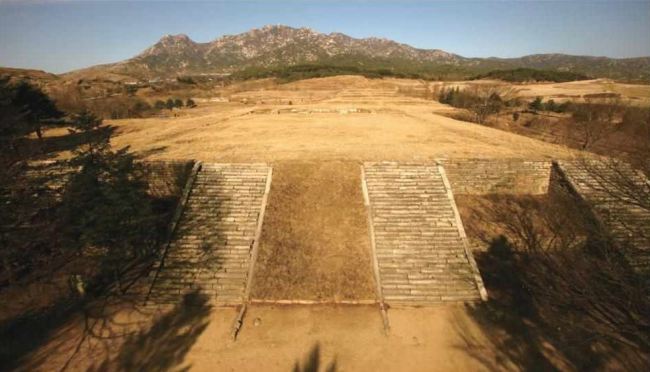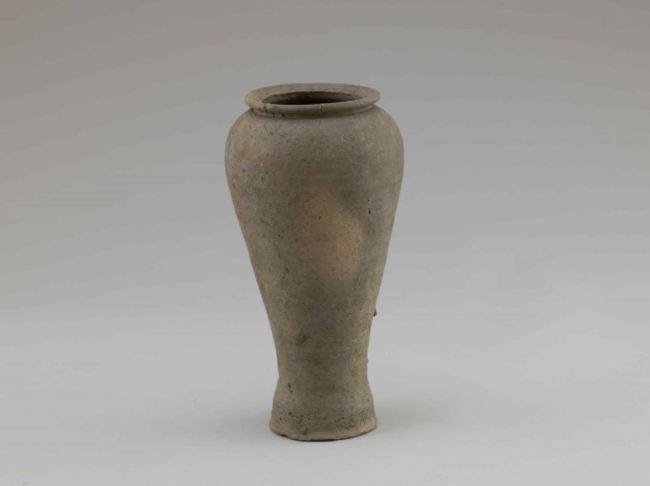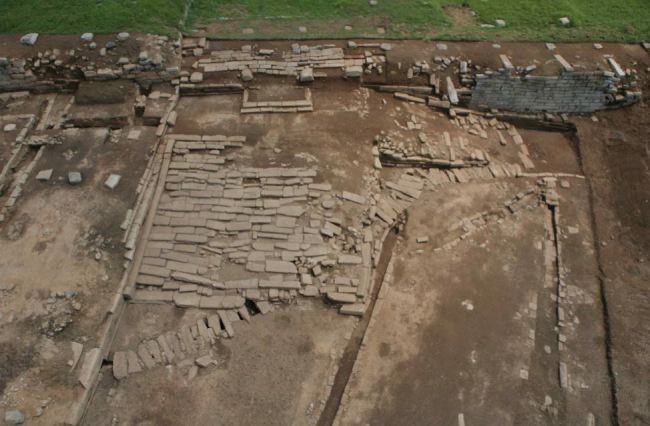South and North Korea have agreed to resume the excavation of the ancient palace site of Manwoldae located in the North Korean city of Kaesong, the Cultural Heritage Administration said Tuesday.
A study of Manwoldae, where the now-demolished royal palace of the Goryeo Kingdom (918-1392) once stood, could offer a way for the two Koreas to reconcile their differing views on Korean history.
 |
Manwoldae site (Cultural Heritage Administration) |
South Korean officials held a working-level meeting with the North’s National Reconciliation Council on Friday, during which they agreed to conduct a joint survey and preservation of the relics from Sept. 27 to Dec. 27. An official groundbreaking ceremony will take place on Oct. 2.
The excavation work this year will focus on the foundation of the western parts of Manwoldae’s central buildings that have been severely damaged.
The two Koreas first agreed on the excavation in 2006 and commenced the project the following year. South Korean scholars visited Kaesong in 2008, 2010, 2011, 2014 and 2015, when they carried out the longest dig, which lasted six months.
During the period, they uncovered 16,500 pieces of relics including metal print types and Goryeo celadon.
 |
A relic found in the Manwoldae site (Cultural Heritage Administration) |
The project was halted in light of the North’s growing nuclear ambition, marked by nuclear and long-range ballistic missile tests.
South Korean scholars seek to better understand the royal lifestyles of Goryeo through research on Manwoldae, which hosted the palace until it was obliterated during the Red Turban invasion in the 14th century.
“I believe there is no inter-Korean border when it comes to cultural heritage. ... The heritage from long ago, the ancient kingdoms have no borders. We pour our efforts so that (study of) cultural heritage is one that both Koreas can be most passionate about,” said Chung Jae-suk, the newly-appointed CHA chief.
 |
Manwoldae site (Cultural Heritage Administration) |
In addition to Manwoldae, South Korean officials have suggested a joint excavation of the ancient Goguryeo Kingdom tombs in Pyongyang. Goguryeo is a kingdom that predates Goryeo, which in its heyday ruled over half of the Korean Peninsula along with a vast area in today’s China.
They also proposed to the North a joint survey of relics from the 1919 March 1st Movement -- one of the largest displays of Koreans’ resistance against Japan’s 1910-1945 colonial rule -- in commemoration of the movement’s 100th anniversary.
Seoul officials have also suggested the South and North jointly nominate the traditional Korean sport “ssireum” -- similar to wrestling -- for UNESCO’s Intangible Cultural Heritage list.
CHA officials said the heritage administration would work closely with the Unification Ministry and the Ministry of Foreign Affairs to make sure that the excavation does not violate sanctions placed on North Korea over its nuclear program.
All South Korean equipment used in the research will be taken out of North Korea after their use, and the only cash payment to North Korean workers will be for their meals. This policy had previously been agreed on by the two Koreas before the initial dig commenced in the previous decade.
The government has allocated 1.7 billion won ($1.5 million) for Manwoldae and inter-Korean work on cultural heritage next year. The 2019 budget for the CHA stands at 801.7 billion won, an 8.4 percent increase from the year before.
By Yoon Min-sik
(
minsikyoon@heraldcorp.com)










